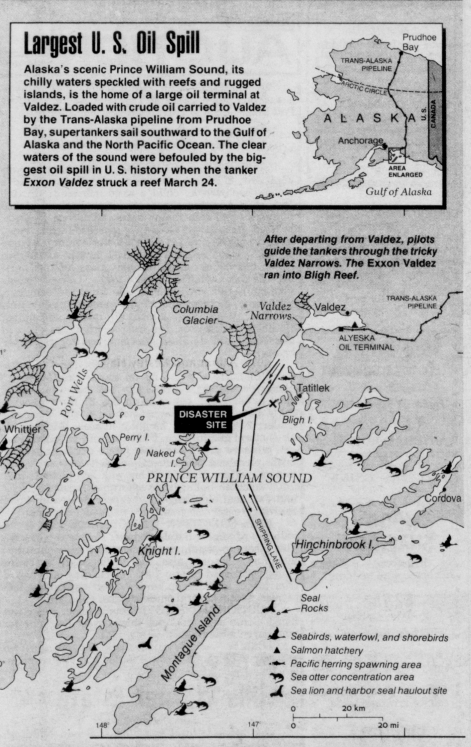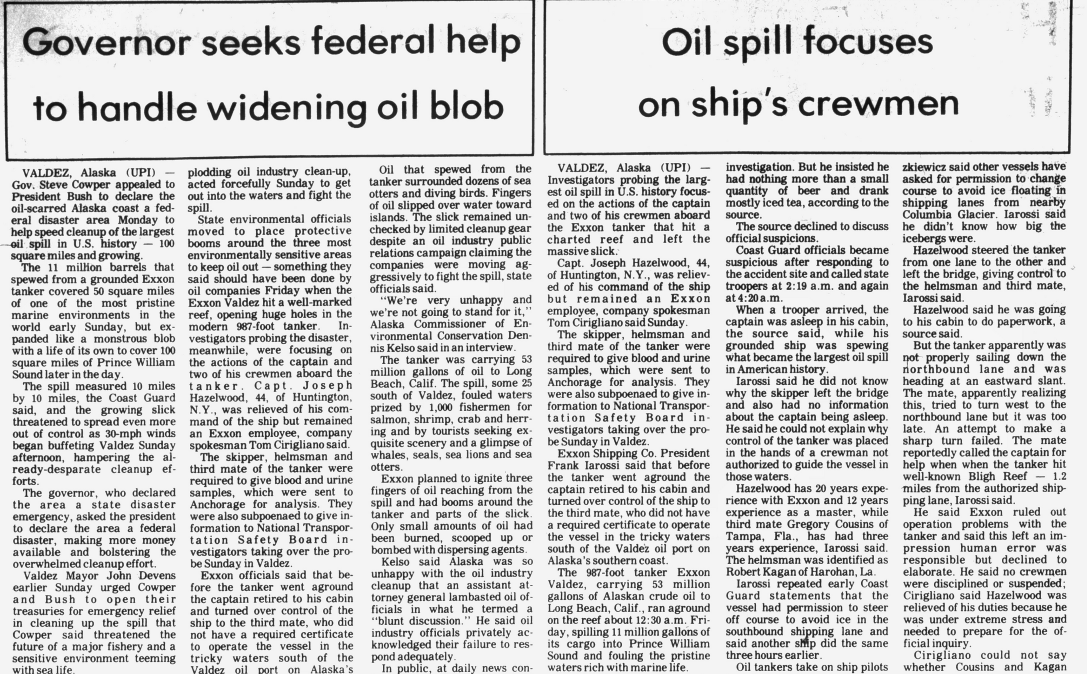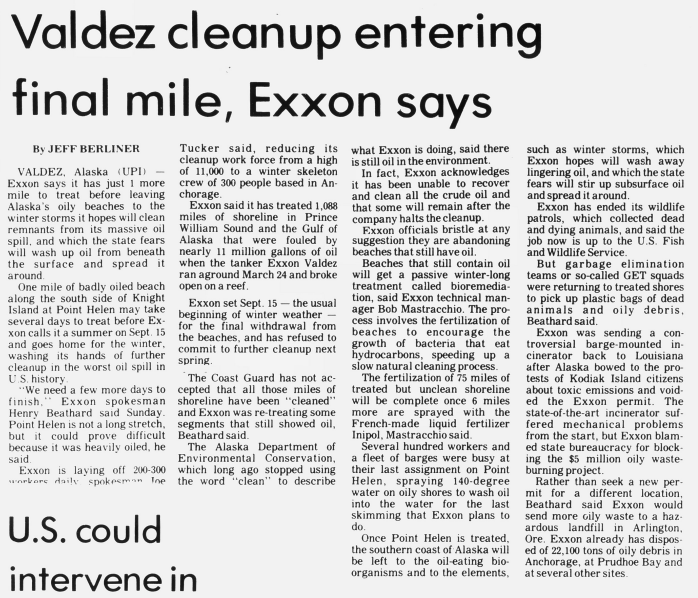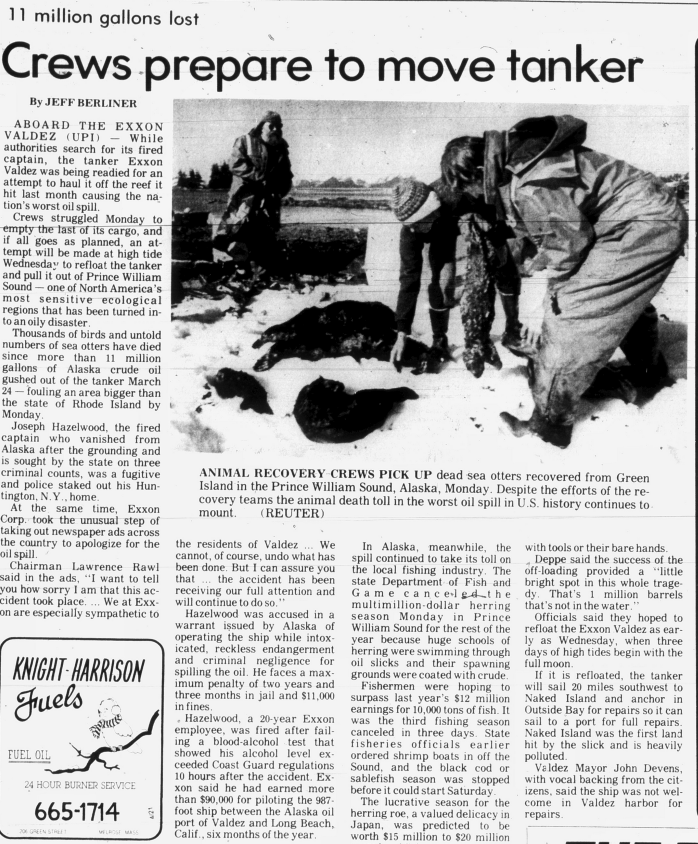On March 24th, 1989, the Exxon Valdez, an oil tanker owned by Exxon Shipping Company, ran aground in Prince William Sound, Alaska, causing one of the worst environmental disasters in history.
The tanker, which was carrying over 53 million gallons of crude oil, struck a reef and spilled approximately 11 million gallons of oil into the pristine waters of the sound. The spill covered over 1,300 miles of coastline and devastated the local wildlife, including otters, sea birds, and whales.
The cleanup effort was immense and took years to complete. Thousands of volunteers, workers, and scientists worked tirelessly to try to contain and clean up the spilled oil. The disaster had a profound impact on the region’s environment and economy, with the fishing and tourism industries suffering significant losses.
Exxon was widely criticized for its handling of the spill and for its response to the disaster. The company was eventually held liable for the damages caused by the spill and paid out billions of dollars in settlements and fines.
The Exxon Valdez disaster led to increased scrutiny and regulations on the oil industry, with many companies implementing new safety measures and spill response plans to prevent future incidents. However, the impact of the spill on the environment and local communities will be felt for decades to come.
In addition to the environmental and economic impacts, the Exxon Valdez oil spill also had far-reaching social and cultural effects. The spill occurred in an area that was home to several Native Alaskan communities, who relied on the local wildlife and fisheries for subsistence and cultural practices.
The spill had a devastating impact on the traditional way of life for these communities, as the oil contaminated the fish and wildlife that they relied on for food and cultural activities.
In the aftermath of the spill, there were also significant changes to regulations governing the oil industry. The US Congress passed the Oil Pollution Act of 1990, which increased requirements for oil spill prevention and response, including measures to ensure that oil companies were financially responsible for any spills that occurred. These regulations have helped to prevent similar disasters in the years since the Exxon Valdez spill.





